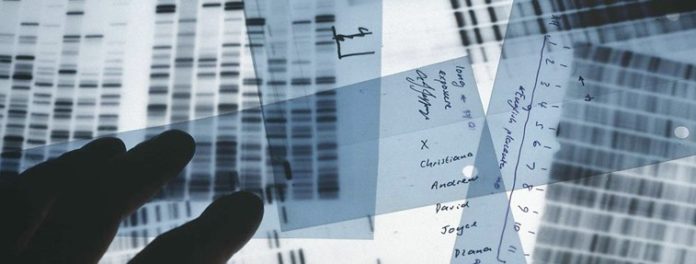
Universal screening to identify women carrying BRCA gene mutations is a “questionable” idea with little to no clinical value given the “extraordinarily low prevalence” of the mutations, experts say in a new article published in JAMA Oncology.
The decision-analysis study, conducted by Elisa F. Long, PhD, and Patricia Ganz, MD, of the University of California Los Angeles, shows that for every 10,000 women screened, BRCA testing — compared with family history-based testing — would prevent four cases of breast cancer and two cases of ovarian cancer, leading to an average increase in life expectancy of just 2 days for every woman screened.
There would be no benefit whatsoever for almost all women undergoing BRCA testing, according to the authors.
“For 99.75% of women screened, a negative genetic test offers no increase in life expectancy nor would it eliminate the need for regular mammograms, and it could provide false reassurance that a woman is not at risk for breast cancer,” they write.
The researchers concluded the BRCA genetic test that is most widely used today—marketed by Myriad Genetics for up to $4,000 per test—is too expensive to warrant universal screening, given how rare BRCA mutations are in women:
“Even though a very small percentage of women would benefit from universal BRCA testing, at $2000 to $4000 per test, such a strategy is an inefficient use of health care resources… The cost of BRCA testing would need to drop by 90% for testing to be cost-effective for the whole population.”
Other diagnostic techniques — particularly biannual mammography — offer significantly greater value for cost, the study determined.
Of the 233,000 breast cancers diagnosed annually in the United States, BRCA gene mutations account for only 5-10%. However, women with these mutations have a dramatically increased risk of breast cancer, with 55 to 65% of BRCA1 mutation carriers and 45% of BRCA2 carriers developing breast cancer by age 70, compared to 8% of women in the general population*. Additionally, women with BRCA mutations tend to develop breast cancer at a younger age, often bilaterally (in both breasts), and frequently as a more aggressive subtype, such as triple-negative breast cancer. BRCA mutations also greatly increase the risk of developing ovarian cancer, with a prevalence of about 1.3% among women in the general population compared to 39% among BRCA1 carriers and approximately 15% among BRCA2 carriers.
*Note that the 8% figure refers to the percentage of U.S. women who develop breast cancer by age 70. By age 85, the prevalence increases to about 12% in the general population.
Universal screening is ‘like looking for a needle in a haystack’
Given the cost of testing and the fact that BRCA mutations are rare and account for a relatively small proportion of breast cancers, most medical organizations do not recommend routine screening in the general population. The U.S. Preventive Services Task Force (USPSTF), for example, recommends BRCA genetic testing only if there is a known family history of breast, ovarian, tubal or peritoneal cancer.
Dr. Long said that although the Myriad test remains the most commonly used test for BRCA mutations, a new $249 test recently announced by Color Genomics could encourage other companies to introduce lower-cost genetic tests—which could make universal screening more practical and more affordable. She added, however, that providing personalized genetic counseling services on such a large scale would not be practical.
“It’s like looking for a needle in a haystack,” Dr. Long said. “If only 1 in 400 women across the country have one or both of the BRCA-1 or BRCA-2 mutations, universal screening would cost $1 million to $2 million to detect a single BRCA mutation, or nearly $400 billion to screen all women in the U.S.”
Screening a higher-risk population would make genetic testing more clinically relevant and cost-effective, the authors said. For example, the incidence of BRCA mutations jumps to 1 in 50 for women of Ashkenazi Jewish descent, and studies have documented survival benefits and favorable cost-effectiveness estimates for genetic testing in that population. In a previous analysis, Long and Ganz found that the approach would yield an estimated 62 breast and 34 ovarian cancers averted per 10,000 women tested, and gains in life expectancy that were 16 times higher than with universal screening.
Rather than focusing on universal genetic testing, Dr. Long — who carries the BRCA1 mutation herself and has recently survived triple-negative breast cancer — suggests that investing in research to improve the accuracy of current diagnostic tools, such as mammograms and MRIs, would likely have the greatest impact on breast cancer outcomes.
